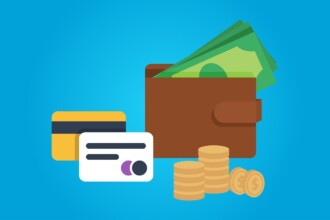Here is what you should know about secured and unsecured loans in order to choose the best option.

Secured and unsecured loans: how to know which one to choose? Source: shutterstock.com
Taking a loan is not something to rush into blindly. Spending more than you earn always comes with a price. At the same time, such a necessity inevitably appears in anyone’s life. While those in need of smaller sums can often use traditional peer-to-peer lending, bigger loans require using the services of a specialised financial institution. Since they offer different credit options on the market, one must understand the distinctions before plunging into debt.
Here is what you should know about secured and unsecured loans in order to choose the best option.
Secured loans
If we speak about the “security” of a loan, we mean the level of risk for the borrower. Secured loans are less risky for lending institutions/individuals since the payback agreements are protected by collateral.
Collateral is something valuable enough to cover the borrowed sum if the debtor fails to repay on the agreed terms. As a rule, cars and houses are taken as collateral at the time of purchase. These pledged properties can be taken away through repossession if you stop paying back. In commercial lending equipment, inventory or invoices are used as collateral.
Repossession shows up on your credit reports for years to come, even if you eventually get the asset back, and can lead to lower credit scores. Moreover, you can only hope that the property gets sold for a proper sum to fully cover the loan, otherwise, guess what – you will still be obliged to pay the difference.
There are also secured credit cards requiring a customer to make an initial deposit against the credit limit, which guarantees the loan. Those are often used to build a good credit score from scratch or rebuild it after a bad setback. A cash security deposit is usually equal to your credit limit. The issuer holds the deposit in case you don’t pay your bill; you get the deposit back when you upgrade to a regular “unsecured” card or close the account as agreed.
You may also take advantage of a title loan if you have a paid-off vehicle that can cover another loan. However, the APR can range from 100% to 300% interest. The lenders usually provide amounts to borrow equal to about 25% of the car’s total value and keep the car’s title.
Secured loans are a valid choice for those whose credit history leaves much to be desired. The reason is – they simply won’t qualify for an unsecured loan. Lenders are not too selective about the candidates as they can always take their property back. They also usually provide lower interest rates and longer terms to pay.
Nevertheless, be careful before taking a secured loan. You need to properly estimate your financial capabilities. If you don’t have a steady income, you may spend a few years paying back for something that will ultimately be taken from you. In addition, repossession does not necessarily pay the debt off, so you may still end up sitting on a pile of debt.
As for secured business loans, businesses with solid trading histories and assets available to put up as collateral are best suited. There is not much restriction in terms of sector or industry.
Many secured loans belong to the realm of so-called “predatory” lending practices where borrowers can never pay down the loan’s principal. In this case, they make your financial situation much worse than before the loan took place. Some debts pass over to the next generation when a borrower dies in the middle of their mortgage repayment. Secured credit cards are an exception since you don’t use more than the money you’ve already deposited.
At the same time, secured loans have their benefits:
➕ larger amounts to borrow;
➕ lower interest rates – for instance, mortgage rates in the USA equal approximately 4%, while in Europe real estate property can be obtained with less than 1% APR;
➕ less strict requirements on credit rating and debt-to-income ratio;
➕ longer repayment periods (20 or 30 years is not even the highest limit);
➕ great flexibility for business (personal assets may be also used as collateral);
➕ mortgages and home equity loans allow eligible candidates to take tax deductions;
➕ cash-secured loans might help you qualify for major future credit expansion and improve your credit score.
Unsecured loans
Briefly speaking, unsecured loans are not guaranteed by any type of a deposit or collateral asset. Providing such loans involves a high risk on the side of a borrower. Therefore, applicants for unsecured loans undergo close scrutiny and thorough checks of their financial records.
The most common type of unsecured loan is the credit card. In the UK, households hold £170 billion of unsecured debt, a figure that is set to reach between £300 billion and £350 billion by 2020. 38% of this debt is represented by credit card loans.
Student loans cover up to 100% of school-certified college and graduate school costs. Although federal student loans are typically the most affordable, they may not be a complete solution for every student. Therefore, private institutions also get their significant portion of loans meant for education. Private student loans can cover the gap between what you need for school and any federal student aid you receive, including grants, loans and work-study pay.
Personal loan is money borrowed from a bank, credit union or fintech lender to pay back in fixed monthly payments, or instalments, typically over two to five years. Lender rates can range from 6% to 36% APR. The aim of such loans is not specified so you can utilise the borrowed amount in any possible way.
Currently, it is the fastest-growing form of consumer lending in the US, growing 19.2% in Q1 2019, according to a recent Transunion consumer credit report. Personal loans underwritten by fintech alternative lending platforms have grown rapidly, accounting for roughly 38% of the outstanding balances at the end of 2018.
Unsecured business loans won’t require pledging any collateral to obtain the loan. However, the borrower must still meet income and credit requirements. The amount they can receive can range from $5,000 to more than $500,000, depending on the size of the business and its rating. Some lenders may also offer businesses a revolving line of unsecured credit. They are suitable for businesses that are looking to borrow a smaller amount of capital, and that are unwilling, or unable, to secure the debt with company assets.
Though unsecured loans are harder to qualify for, they have a range of significant advantages:
➕ many credit services offer instant online application approvals;
➕ instant loans require minimal documentation;
➕ you may be eligible to get this without any property, vehicles or other assets to put up as collateral;
➕ there’s no danger of losing any assets if you can no longer repay the debt;
➕ if your business files for bankruptcy, the court may discharge unsecured business loans;
➕ if you have a positive credit standing, you may get more favourable interest rates.
Traditional lenders have higher expectations for prospective loan candidates. They won’t give a huge amount of money without any payback guarantee, so the sums are usually lower. If the borrower has a low credit rating, past defaults, etc. they will typically face higher interest rates.
Credit unions and banks pay special attention to your income level and stability of your salary. They may call your place of employment to verify information provided. They will definitely compare your income to your current debt and come up with a debt-to-income ratio. This ratio plays a vital role in your approval.
Some loan applicants get a co-signer on board, who can take on the legal liability to pay off a debt in the case of the borrower’s inability. However, if you haven’t carefully considered your debt repayment strategy, you will endanger your good relations with this person, your trustworthiness, and someone’s credit history.
The latest credit trend, POS loans, can change the means of financing large purchases, according to TransUnion’s Q1 2019 Industry Insights Report. They provide consumers with an instant unsecured personal loan at checkout. Other fintech disruptions in the lending sphere include peer-to-peer lending platforms that facilitate lending money to individuals or businesses through online services that match lenders with borrowers. Secondly, there are crowdfunding platforms designed for public money-raising campaigns.
The last thing to say is that you should avoid the temptation to transfer unsecured debt into a secured loan. Technically, you can take out a home equity or a title loan to pay off your credit cards or other bills. However, this puts your home or a car at huge risk. Instead, it’s better to work on increasing your income or your money management skills.
SEE ALSO:








